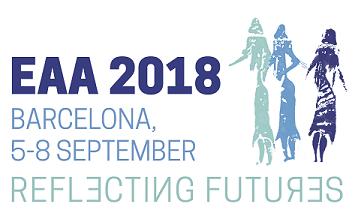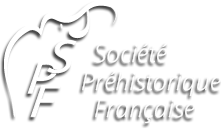 A noter / Autour de la Préhistoire
A noter / Autour de la Préhistoire 
Congrès, colloques, réunions
5-8 septembre 2018
Barcelone

24th Annual Meeting of the European Association of Archaeologists "Reflecting futures" - Session #557 - Theme: Theories and methods in archaeological sciences
The European Bronze Age is regarded as a period of pre-modern ‘globalisation’, marking a significant change from the interconnectivity in the Neolithic. Mobility and migrations played a fundamental role in shaping the European Bronze Age, with circulation of people, artefacts, and raw materials (metals, amber, wool) along north-south and east-west axes. This session aims to bring together geoarchaeologists and landscape archaeologists working on Bronze Age contexts from different parts of Europe to highlight similarities and differences observable at different scales of geoarchaeological research.
The following themes will be deal with:
(a) At the micro- or intra site-scale, the application of geoarchaeological methods to specific archaeological features, such as floors, rubbish pits and middens, combustion features, earth-based construction materials, activity areas, etc.
(b) At the site scale, the geoarchaeology of all types of Bronze age sites (e.g., pile dwellings in lacustrine or floodplain settings, sites enclosed by ditches and ramparts, tells), on their distribution patterns and on the landscape modifications they brought about.
(c) At the landscape, regional or supra-regional scale, the challenge to integrate archaeological interpretations with documented palaeo-environmental trends to construct a robust diachronic understanding of landscape development. This new understanding will perhaps enable the detection of processes or triggers (i.e. natural triggers such as climate; human triggers such as societal developments, trade, exchange, pests) driving these key developments.
One additional aim is to allow for the presentation and discussion of records from European sites that are not published in English and therefore failed to reach the larger audience.
Main organiser :
PhD Cristiano Nicosia (Belgium)
Co-organisers:
Prof Gianna Ayala (United Kingdom)
Prof Stefan Dreibrodt (Germany)
Dr Jakub Niebieszczański (Poland)
Prof Ákos Pető (Hungary)
Abstracts can be submitted at www.e-a-a.org/EAA2018 until 15 February 2018.


